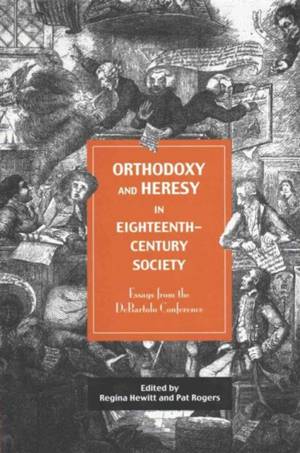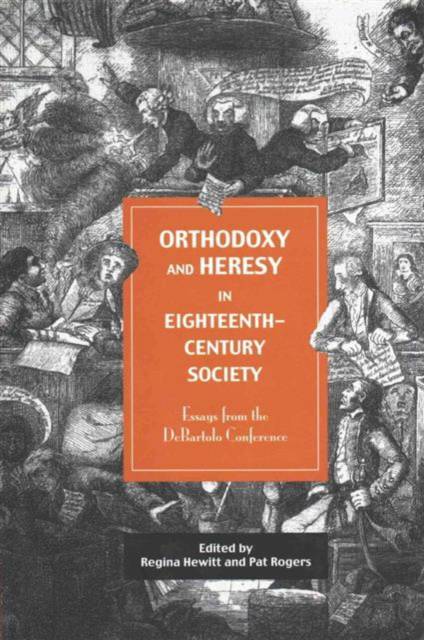
- Afhalen na 1 uur in een winkel met voorraad
- Gratis thuislevering in België vanaf € 30
- Ruim aanbod met 7 miljoen producten
- Afhalen na 1 uur in een winkel met voorraad
- Gratis thuislevering in België vanaf € 30
- Ruim aanbod met 7 miljoen producten
Zoeken
Orthodoxy and Heresy in Eighteenth-Century Society
Changing Sex in Early Modern Culture
€ 107,95
+ 215 punten
Omschrijving
Orthodoxy and Heresy in Eighteenth-Century Society uses the concept of heresy to gain insight into the value of social order in eighteenth-century England and France. By applying the vocabulary of religion to behaviors that might more usually be studies as deviant, and contributors account for the complexity and vehemence of conflicts over right order played out in the literary, artistic, and political arenas of the age. Following a conceptual introduction that enlists the sociology of Emile Durkheim to explain how reference to the sacred can gloss the social, the essays examine a wide range of cultural encounters between orthodox and heterodox figures. Topics covered are the transgressive spaces constructed by London guides, riots involving Anglicans and Dissenters, the adultery trial of the Worsleys, the infectious climate of dissent feared by Swift, the oppressed condition of Catholics that worried Pope, the orthodox rebel Junius, the outcast sculptor Simon Jaillot, the coexistence of Gnostic symbols and Christian morals in Clarissa, Diderot's exposure of the literariness of religion, the alternative societies of libertine novels, and the alternately orthodox and heterodox identities of Olympe de Gouges and John Wesley. Intelligently employing new cultural and critical approaches, the essays in Orthodoxy and Heresy in Eighteenth-Century Society foster a challenging, new understanding of the dynamic interplay between orthodox and heterodox impulses in eighteenth-century society.
Specificaties
Betrokkenen
- Uitgeverij:
Inhoud
- Aantal bladzijden:
- 293
- Taal:
- Engels
- Reeks:
Eigenschappen
- Productcode (EAN):
- 9781611481549
- Verschijningsdatum:
- 1/02/2002
- Uitvoering:
- Hardcover
- Formaat:
- Genaaid
- Afmetingen:
- 168 mm x 243 mm
- Gewicht:
- 623 g

Alleen bij Standaard Boekhandel
+ 215 punten op je klantenkaart van Standaard Boekhandel
Beoordelingen
We publiceren alleen reviews die voldoen aan de voorwaarden voor reviews. Bekijk onze voorwaarden voor reviews.










